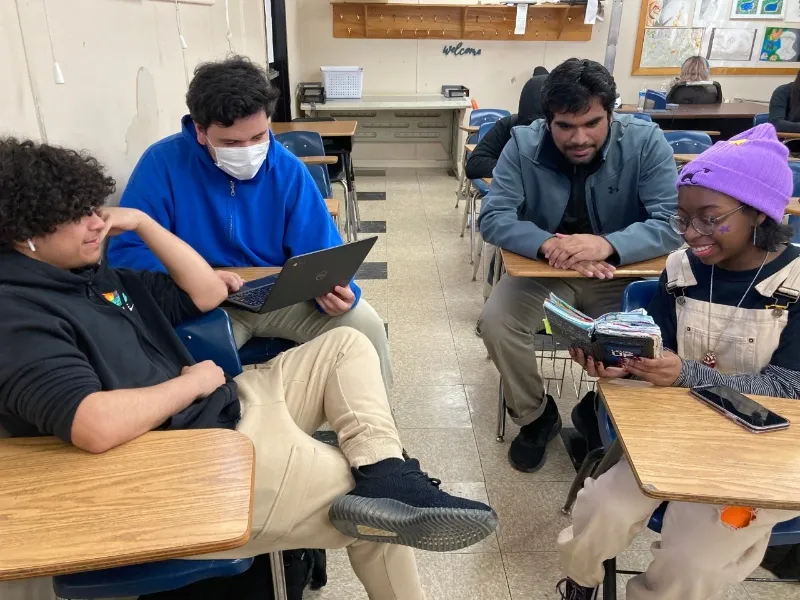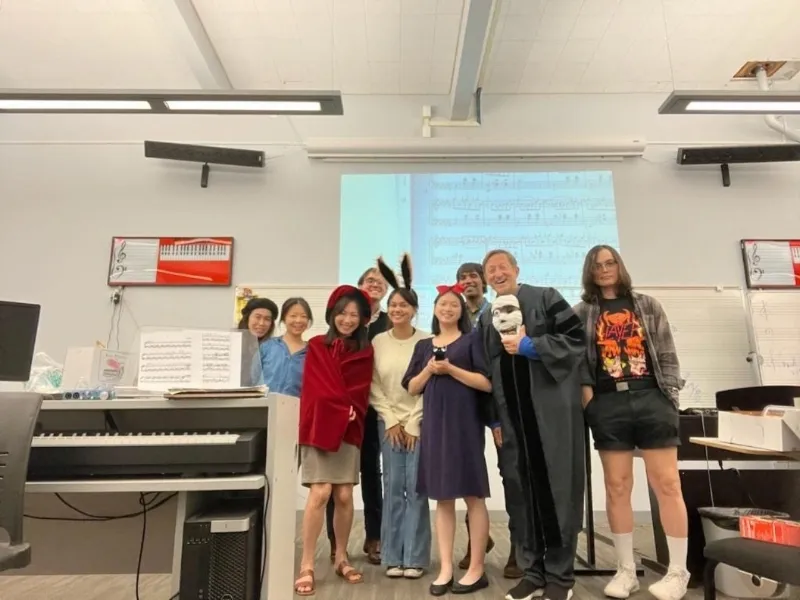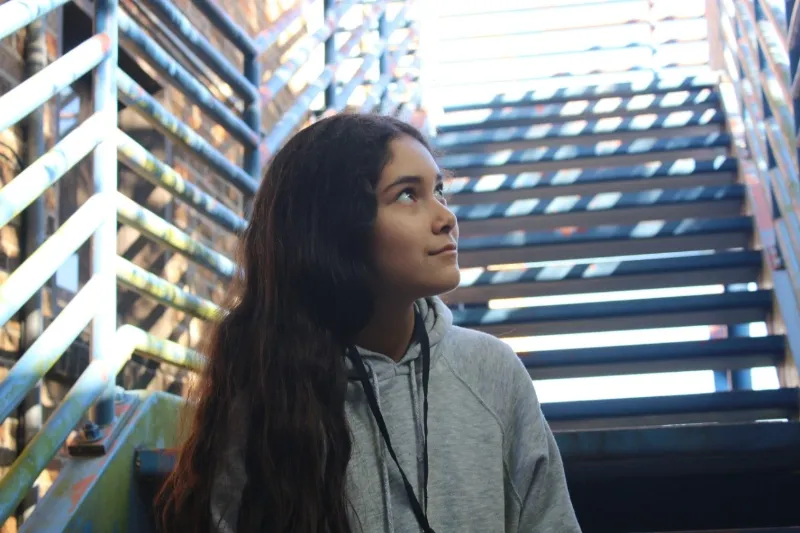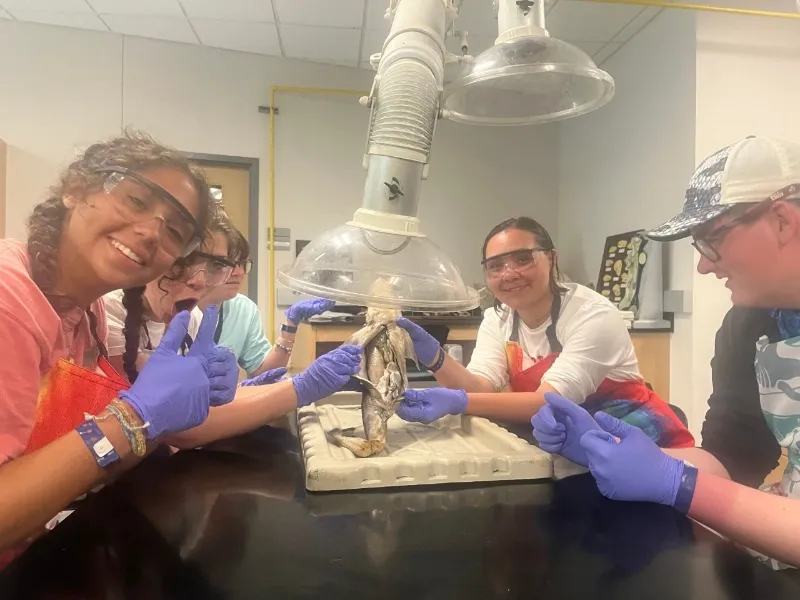How Many Years of College to Be a Teacher in 2025

Want to be a teacher? Learn the difference between a Bachelor's in education and other degrees to streamline your career path.
Becoming a teacher is a rewarding career choice that plays a crucial role in shaping the future of young individuals and society as a whole. Some educators spend their entire lives learning and taking classes to expand their knowledge and skill set, but you might be wondering how many years of college it takes to actually become a teacher.
In this article, we'll explore the various pathways to becoming a teacher, provide valuable insights into how to kickstart your teaching career, as well as talk about how long it takes to reach the end goal. The journey to becoming an educator can involve several different pathways, including obtaining a bachelor's degree, a master's degree, and/or a teaching certificate, so how will you know which path is for you? Let's get into it.
Scholarships for teachers can help future educators earn a college degree without incurring massive student debt. Create a free Bold.org profile and learn how you can apply for teaching scholarships today!
Get Matched to Thousands of Scholarships
Create your Bold.org profile to access thousands of exclusive scholarships, available only on Bold.org.
Create Free ProfileHow Many Years of College Are Required to Become a Teacher?
There are several different educational routes that a prospective teacher can take to become a teacher. Depending on the degree program or route that you choose, becoming a teacher can take anywhere between 4-6 years. However, it's important to know which teaching degree aligns with your teaching goals. Whether that be becoming elementary school teachers or high school teachers, there is a path for you.

Bachelor's Degree in Education (4 Years)
A common route to becoming a teacher is pursuing a bachelor's degree in education. This degree program typically takes around four years to complete.
Many universities offer specialized education programs that focus on pedagogy, curriculum development, classroom management, and educational psychology for future teachers. In addition to education coursework, aspiring teachers often complete student-teaching internships, which provide hands-on experience in real classrooms under the guidance of experienced educators.
A bachelor's degree in education is suitable for students who are committed to teaching from the outset and want to delve deeply into the theory and practice of education during their undergraduate degree.
Bachelor's Degree in a Subject Area + Teaching Credential (5+ Years)
However, if you're passionate about a specific subject and want to teach it at the middle school or high school level, you can pursue a bachelor's degree in that subject area (e.g., English, math, science) and then obtain a teaching credential.
Through this path, after completing your bachelor's degree, you'll need to complete a teacher preparation program and fulfill the requirements for a teaching credential. As a result, this option is ideal for individuals who have a strong interest in a particular subject and wish to share their expertise with students.
A teaching credential, also known as a teaching license or teaching certification, is an official document issued by a state or educational authority that grants an individual the legal authorization to teach in K-12 public schools or other educational settings. This credential is typically required to teach in formal school settings and ensures that educators have met certain educational and professional standards.
The purpose of a teaching credential is to ensure that teachers are qualified and capable of effectively educating students. Credentials set the standards for the knowledge, skills, and competencies that teachers should possess in order to create a positive and productive learning environment. Teaching credentials vary by state and jurisdiction, but they generally involve completing specific education and training programs, which many of them take one or more years.
Create Your Free Profile to Apply for Scholarships Today!
Master's Degree in Education (1-2 Years)
For those who already hold a bachelor's degree in a subject other than education, pursuing a master's degree in education is a viable pathway to becoming a teacher.
After you've completed your undergraduate degree program, earning a master's degree in education will take an additional one to two years to complete, depending on the program. Master's degrees in education programs offer a more focused exploration of educational theory, research, and best practices and are particularly beneficial for individuals looking to transition into teaching from a different field or teachers who want to advance their teaching skills and knowledge.
Teaching Certificate Programs
Teaching certification programs are an alternative pathway for individuals who have a bachelor's degree but do not major in education. The programs vary in duration and structure, ranging from a few months to a year or more.
Alternative teacher certification programs usually combine coursework with practical classroom experience. These programs are designed to provide the necessary pedagogical knowledge and skills to succeed as a teacher. As a result, teaching certification programs can be an efficient way to enter the teaching profession, especially for those who want to make a career change.
Teaching and Associates Degrees
While it is possible to obtain an associate's degree in education, an associate's degree alone may not be sufficient to be a certified teacher in most K-12 educational settings. In many cases, an associate's degree provides a foundational understanding of education concepts but may not meet the requirements for teacher certification.
To become a certified teacher, most states and educational institutions typically require candidates to hold at least a bachelor's degree in education or a related field. A bachelor's degree allows for a more comprehensive study of educational theories, teaching methods, and practical classroom experiences. Additionally, teacher certification often involves completing a teacher preparation program, which may include student-teaching experience and coursework specific to pedagogy and classroom management.

Working in Early Childhood Education
Prospective teachers who are specifically interested in working in early childhood education may need to take additional steps to become certified after earning an undergraduate degree.
Many colleges and universities offer associate's and bachelor's degrees in ECE, providing aspiring teachers with a deeper understanding of childhood development, teaching methodologies, and classroom management techniques. Taking these courses will help prepare students to work in childcare centers or as a preschool teacher.
After graduating with your associate's or bachelor's degree in ECE, aspiring teachers may need to obtain state licensing or certification to work in ECE. ECE certification may involve completing specific training, background checks, and health screening, which may take anywhere between a few months to a year.
The Child Development Associate (CDA) Credential is a widely recognized certification in the field of ECE and is often a requirement for certain positions in childcare centers and preschools. The length of time to earn the Child Development Associate Credential can vary depending on factors such as your prior experience, the specific training program you choose, and the time you dedicate to completing the requirements, but teachers should expect to spend around 6 to 12 months on obtaining the credential.
Working in Special Education
Becoming a special education teacher may take around 4 to 6 six years, but the timeframe can vary based on factors such as the level of education you pursue and the specific requirements in your state.
Typically, to become a special education teacher, you start by obtaining an undergraduate degree in special education or a related field, such as elementary education, with a focus on special education. The bachelor's degree usually takes around 4 years to complete. Some programs offer specialized tracks or concentrations in areas like autism spectrum disorders, learning disabilities, or behavior disorders.
After earning their undergraduate degree, special education teachers need to complete a teacher preparation program that is specific to special education. This program will provide aspiring teachers with the pedagogical training and hands-on classroom experience necessary to work with students with diverse learning needs.
Teacher preparation programs can take around 1 to 2 years to complete, depending on whether you pursue a master's degree or a post-bachelor's certificate program.

How to Become a Public School Teacher
Becoming a public school teacher involves several steps, including education, training, certification, and practical experience. The specific requirements can vary by state and country, so it's important to research the guidelines in your location.
Here's a general overview of how to become a public school teacher:
- Step 1: Education: Like with any teaching position, start by obtaining a degree in education or the specific subject area you're interested in teaching from an accredited program. Some programs offer specialized training for elementary school education, secondary education, or specific subjects like math or science.
- Step 2: Teacher Preparation Program: Many states require the completion of a teacher preparation program, which provides the necessary pedagogical training, classroom management skills, and practice teaching experience. A teacher preparation program can be part of your bachelor's degree program, a master's degree program, or a separate post-bachelor's program.
- Step 3: Obtain Teaching Certification:
- Meet State Certification Requirements: Each state has its own certification requirements for public school teachers. These requirements typically include passing exams, completing specific coursework, and demonstrating classroom teaching skills.
- Pass Praxis Exams: Praxis exams that asses your subject knowledge and teaching skills are commonly required for teacher certification. There are different praxis tests for various subjects and grade levels; for example, you might take a specific praxis exam to become an elementary school teacher and a different praxis exam to become a high school teacher.
- Step 4: Student Teaching: Most teacher preparation programs include a student teaching component, which involves working in a classroom under the guidance of an experienced teacher. Student teaching requirements provide hands-on teaching experience to future teachers and help you apply the skills you've learned in your coursework with real students.
- Step 5: Apply for Teaching Positions: Once you're certified, you can start searching for teaching positions in public schools! You can look for openings on school districts' websites, education job boards, and other job search platforms.
- Step 6: Ongoing Professional Development: After becoming a public school teacher, ongoing professional development is crucial to stay updated on teaching methods, educational research, and best practices. Many school districts require teachers to engage in continuing education to maintain their teaching credentials.
As always, be sure to do your research on how you can become a public school teacher in your district.

Frequently Asked Questions About How Many Years of College to Be a Teacher
Is a master’s degree required to become a teacher?
No, a master’s degree is not always necessary to become a teacher. A bachelor’s degree in education or a teaching credential can be sufficient to enter the teaching profession. However, a master’s degree can enhance your teaching skills and career prospects, especially if you want to specialize or advance in the field.
Can I become a teacher without a degree in education?
Yes, you can become a teacher without a degree in education. Many teaching programs and alternative pathways are designed for individuals with degrees in other fields. Teaching certificate programs, for example, provide the necessary pedagogical training to transition into the teaching profession from another field or with another major.
How long does it take to become a teacher with a teaching certificate?
The duration of teaching certificate programs varies. Some programs can be completed in a few months, while others may take a year or more. The length of the program often depends on factors such as the program's structure and whether you're studying full-time or part-time. That is, if you want to teach elementary school, you'd want to look into a bachelor's degree program specializing in education and verify the time you will commit to.
Although the path to becoming a teacher isn’t easy, if your heart is set on becoming an educator, investing the time and energy into a teaching degree will be well worth your effort. Scholarships for future teachers can help provide financial peace of mind so that you can focus on your degree and graduate on time.
Check out our Scholarship Blog to learn more about full-ride scholarships and tips and tricks for earning scholarship money!